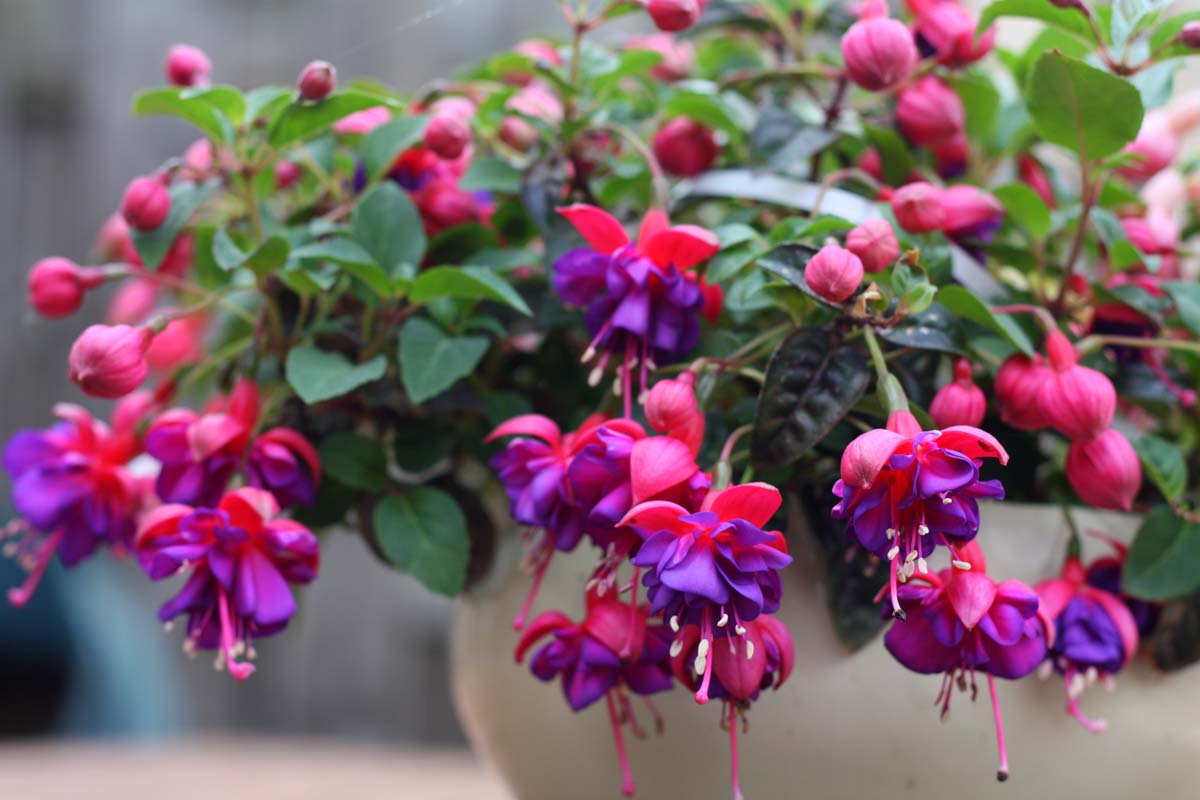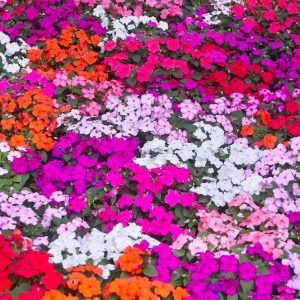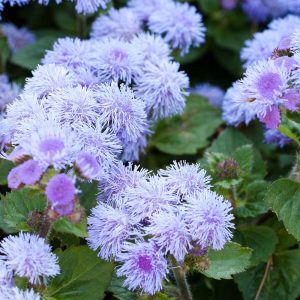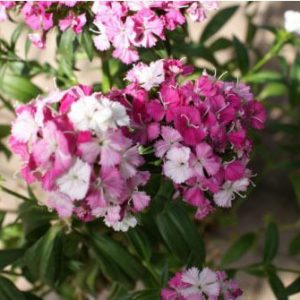Description
Fuchsia –
There are about 100 species of deciduous or evergreen trees and shrub, and a few spreading or climbing perennials, in this genus. They occur from mountainous areas of Central and South America and with 1 species from Tahiti and 4 from New Zealand. There are more than 8,000 hybrids and cultivars, which have been developed for their attractive and distinctive flowers, usually borne more or less continuously from summer to autumn.
Shrub and bush fuchsias are upright growers, while those referred to as trailers are hanging or prostrate in habit. Fuchsia flowers are axillary and usually pendulous, in terminal cluster, with short to long perianth tubes, each topped by far spreading, colorful sepals and 4 erect, broad petals forming a cup or bell, in wonderful range of colors in shades of red, white, pink, and purple, and bi-colors. In some species, the petals are very small or absent. N Flowers can be 1/4″ across or more than 2 ½” across. Fuchsia leaves are opposite or whorled, rarely alternate, simple, lance shaped to very broadly ovate, mid green, 1/4-10″ long, occasionally to 16″ long. They are frequently toothed, grow in pairs (sometimes in whorls of 3). The edible fruit are berries, usually with many seeds.
Grow in a cool greenhouse, or grow prostrate or trailing cultivars in hanging baskets or train up a support. They do not tolerate high summer heat, drought, and high humidity. Outdoors, grow in fertile, moist but well drained soil in full morning sum to partial afternoon shade. Shelter from hot winds and afternoon sun. Fertilize monthly.
Under glass, grow in soil based potting or in a loam bases compost with added grit, in bright filtered light, with moderate humidity, ventilate well. During growth water freely and apply a balanced liquid fertilizer weekly. Do not mist. Keep moist in winter.
Prone to spider mites, scale insects, thrips, whiteflies, fuchsia gall mite, aphids, root knot nematodes, rust, gray mold crown gall, crown gall, crown rots, root rots, southern blight, and verticillium wilt.





